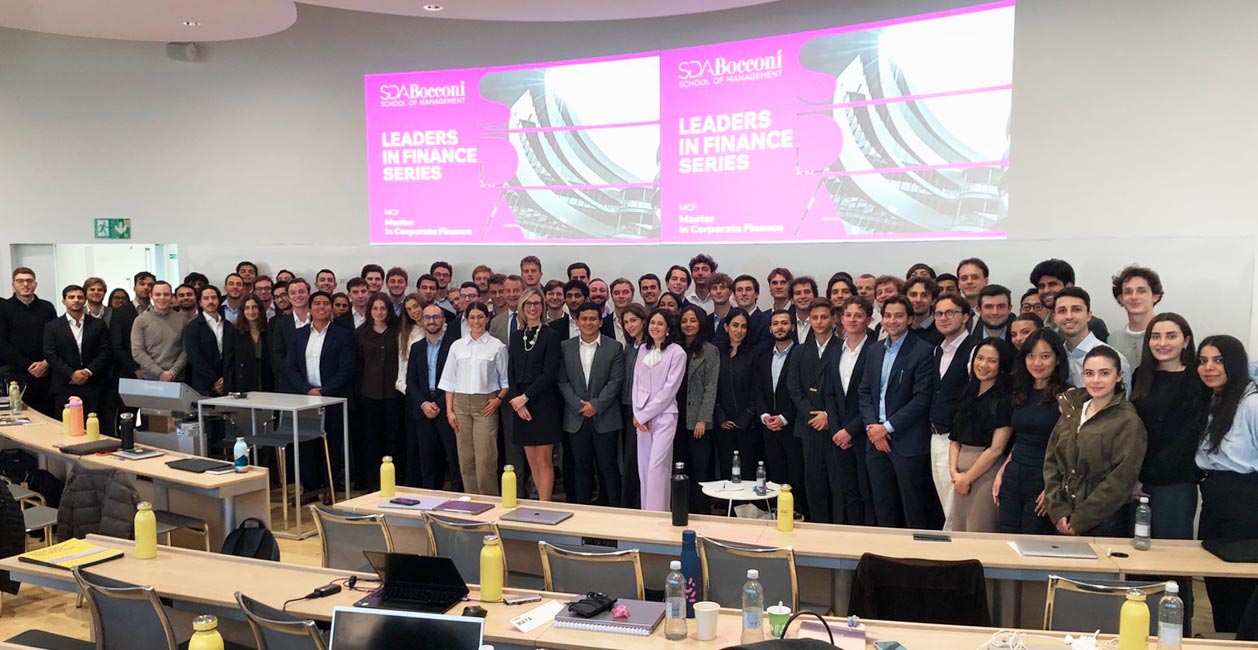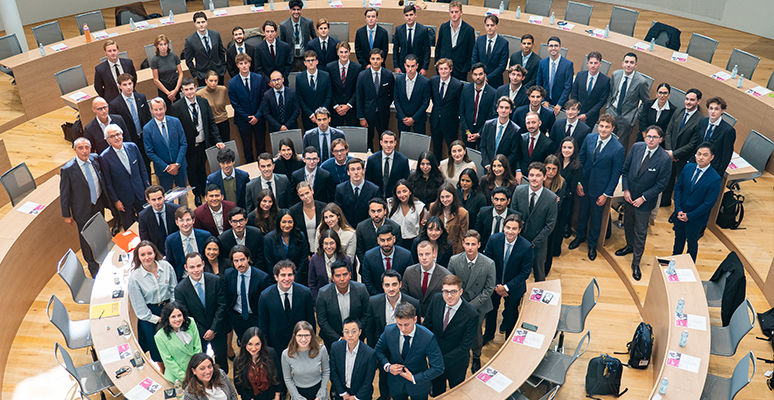
- Start date
- Duration
- Format
- Language
- 3 Dec 2025
- 3 Days
- Class
- Italian
Acquisire competenze su finanziamenti, business plan e valutazione avanzata delle startup per concepire, lanciare e far crescere nuove imprese.
To understand that fintech—innovation in banking and financial services driven by technology—has already revolutionized the sector, one only needs to look at younger generations: increasingly averse to cash, they pay with smartphones and barely know what a physical bank branch is, as their interactions with financial operators happen mainly through apps.
Indeed, younger generations most clearly grasp how fintech has transformed finance. They took center stage at the second edition of Call Tech Action, a week of free events exploring the latest trends in innovation, AI, education, training, and employment across fintech, insurtech (technologies applied to insurance), and proptech (technologies applied to real estate).
“Call Tech Action began just over a year ago as a high-risk initiative, and it has evolved into a systemic effort thanks to the support of the City of Milan,” said Dean Stefano Caselli, introducing the closing event held at SDA Bocconi on Friday, November 22. “I also like to recall that SDA Bocconi itself was born as a high-risk venture, created in 1971 by a group of under-30 scholars who ‘challenged’ Bocconi to open a management school.”
In the afternoon, the Minister of Economy and Finance, Giancarlo Giorgetti, during a discussion with the Dean, emphasized that innovation is not only a driver of growth but also a factor of national security. This is especially true in a disrupted geopolitical landscape, where traditionally developed countries will only be able to face the rise of emerging economies if they succeed in innovating.
“Young people are natural creators and carriers of innovation,” the Minister said, “provided that the education system supports them adequately. Qualified personnel are at the core of any innovation and growth plan. The script can be as good as possible, but we need skilled actors to perform it and a system capable of retaining them.”
Gimede Gigante, Director of Innovation and Corporate Entrepreneurship (ICE) at SDA Bocconi, presented the findings from the first year of research by the European FS Tech Hub. The research program explored the development and dynamics of the fintech sector, focusing specifically on Europe and Italy. The study was co-authored by Prof. Gigante, Jessica Baro, Pierpaolo Cuglietta, Silvia Rella, Francesca Scarlini, and Raffaele Turazzo.
From 2011 to 2024, the number of fintech companies in Italy has grown significantly, from 16 to over 600, with Milan as the development epicenter. Globally, the fintech sector has expanded by 147% since 2018, with notable growth in the EMEA region (Europe, Middle East, and Africa, +206%). However, economic uncertainties in 2024 have led to more cautious investor behavior, resulting in fewer significant funding rounds.
The study proposes an innovative methodology for evaluating fintech companies, integrating traditional financial metrics with "soft indicators" such as governance, management, regulation, and ecosystem factors. This new approach addresses the limitations of traditional models based solely on financial metrics.
Promoted by Assofintech, Italian Insurtech Association (IIA), Italian Proptech Network (IPN), Innovation and Corporate Entrepreneurship (ICE) SDA Bocconi, Politecnico di Milano School of Management (SOM), Luiss Guido Carli and Zest, under the patronage of the City of Milan, the event ran from November 18 to 22 across various locations in the city. The final event, hosted by SDA Bocconi, featured 67 speakers taking the stage.
SDA Bocconi School of Management

Acquisire competenze su finanziamenti, business plan e valutazione avanzata delle startup per concepire, lanciare e far crescere nuove imprese.

Il corso intende fornire tutte le competenze necessarie a padroneggiare e applicare i principali strumenti e framework esistenti in materia di sustainability reporting.

Comprendere e gestire le variabili rilevanti negli investimenti immobiliari come convenienza economica e strutturazione del finanziamento bancario dei progetti.

